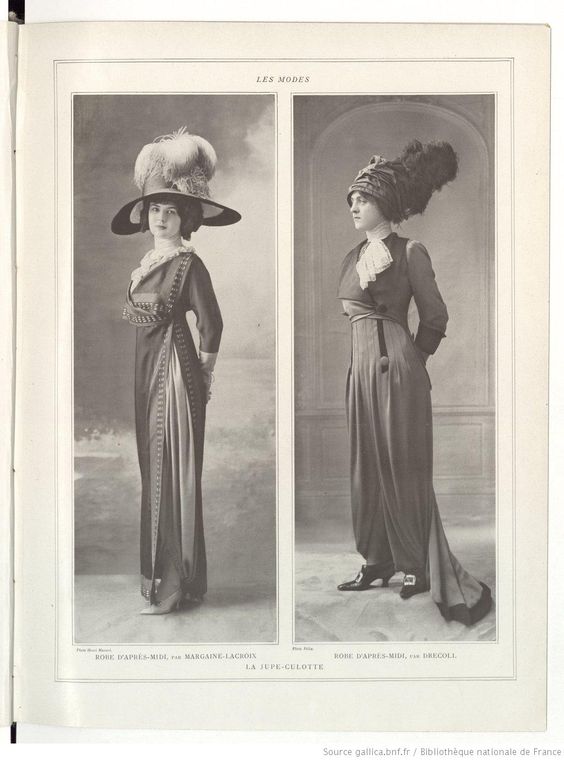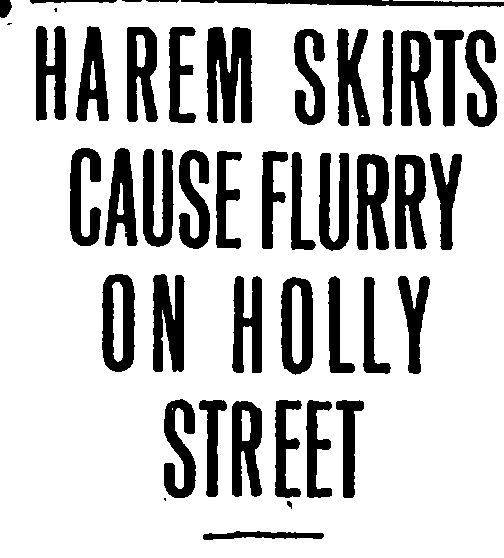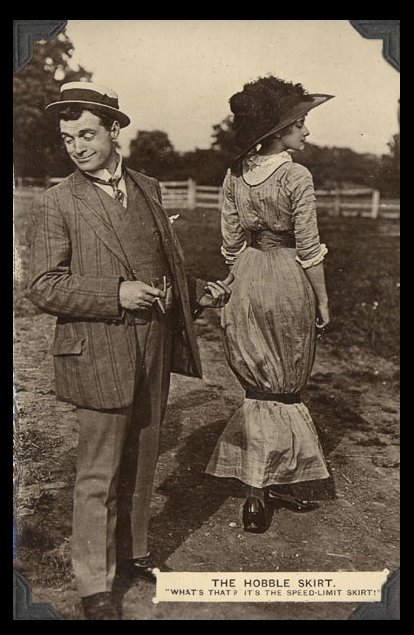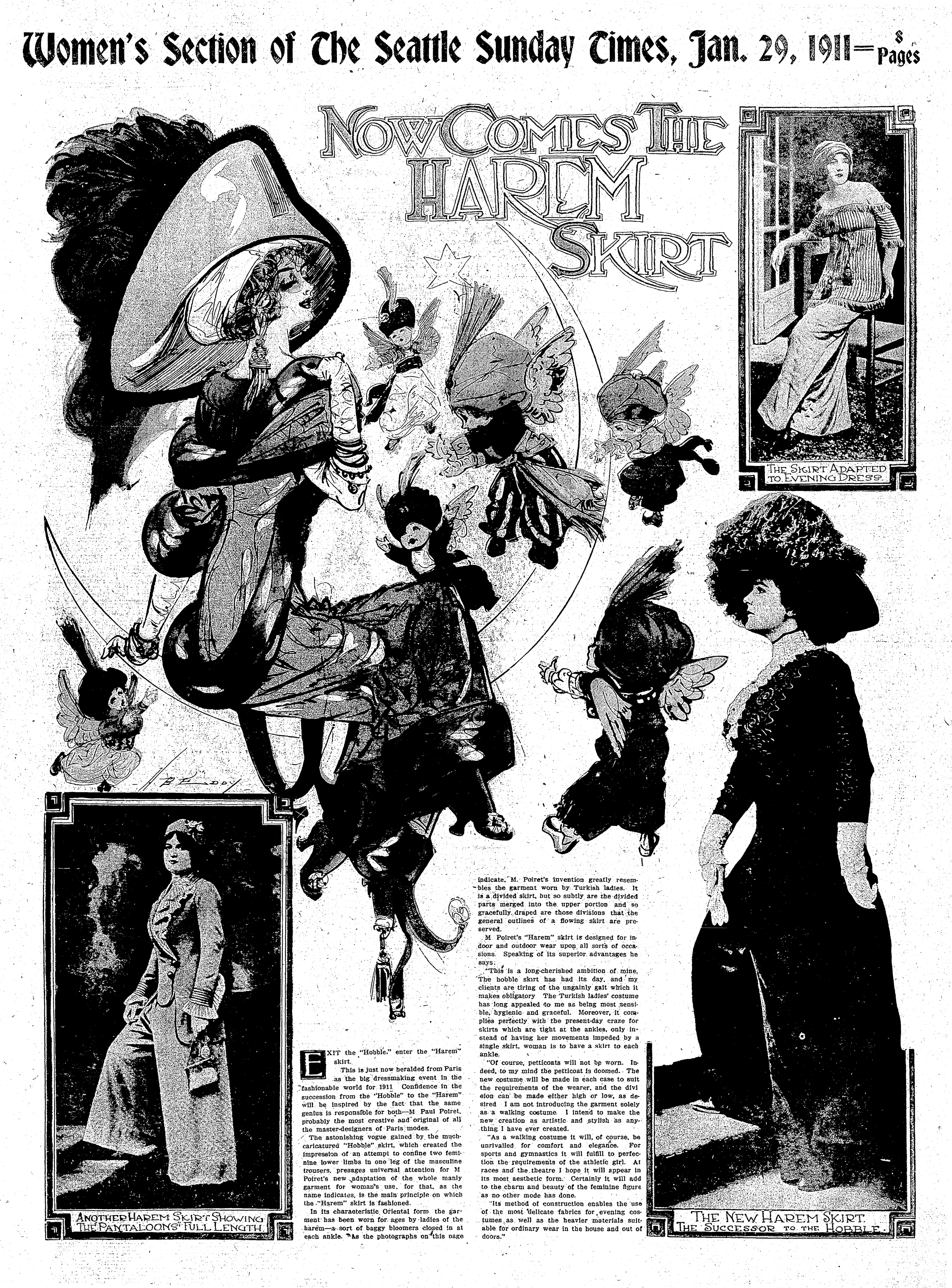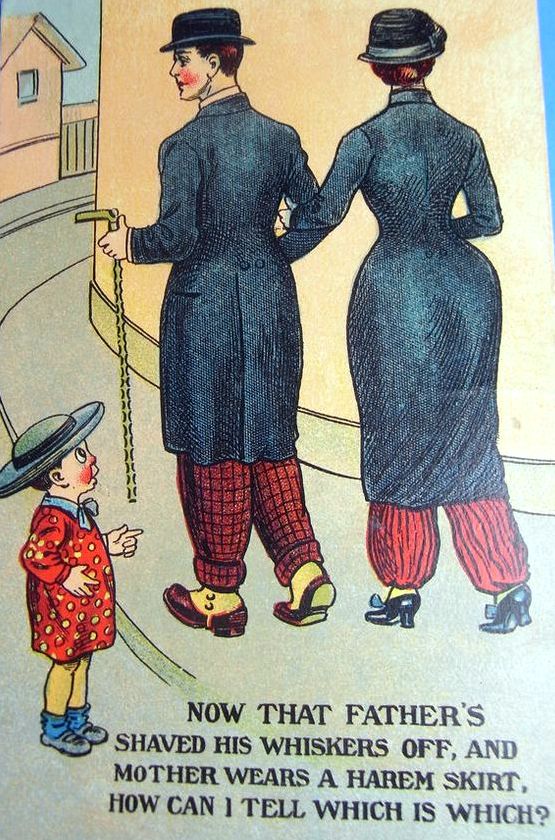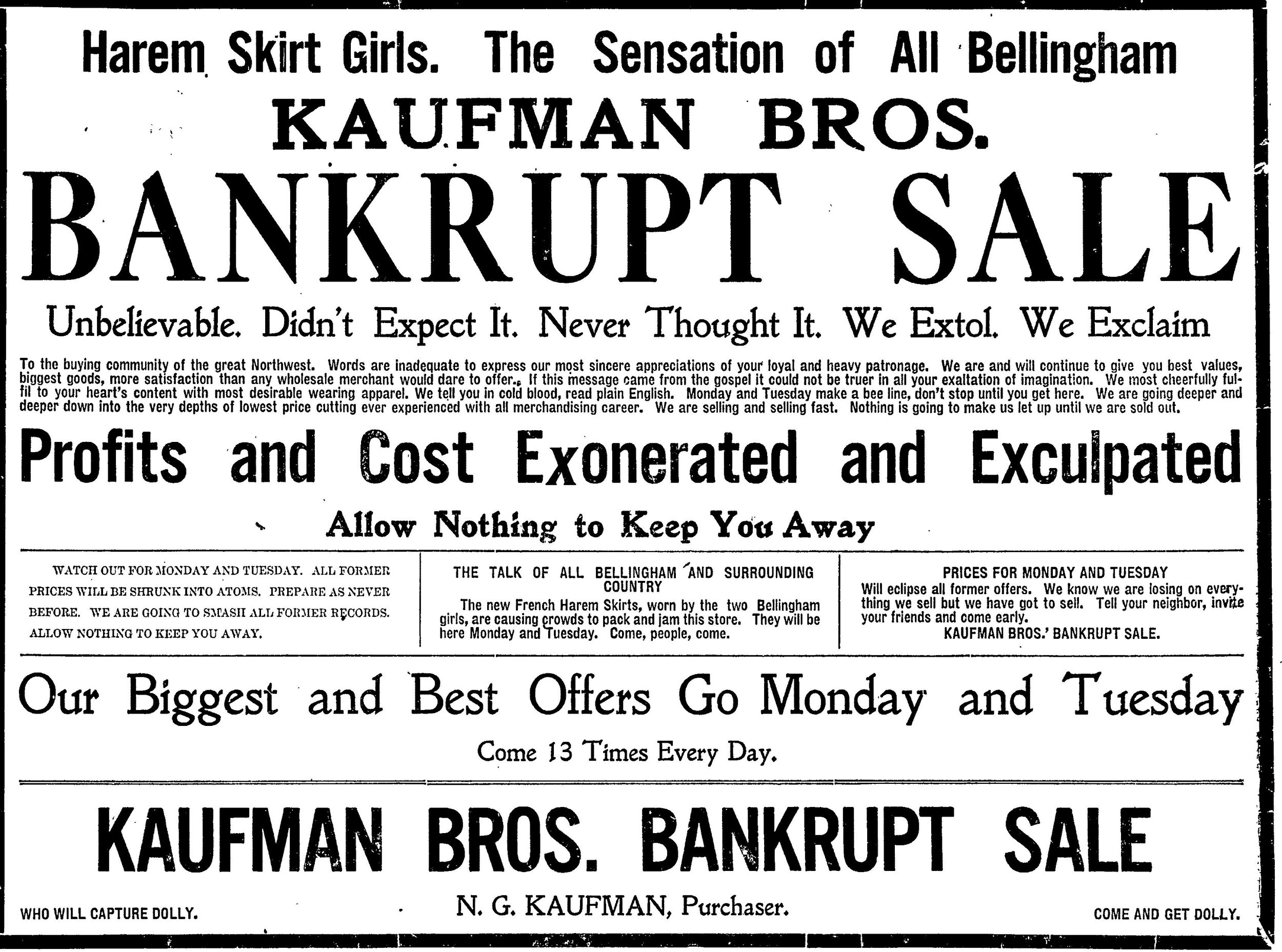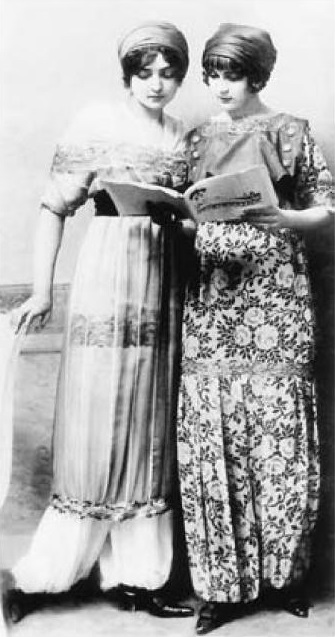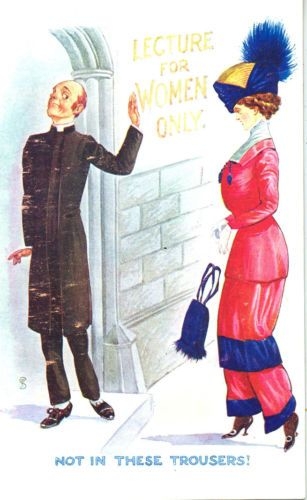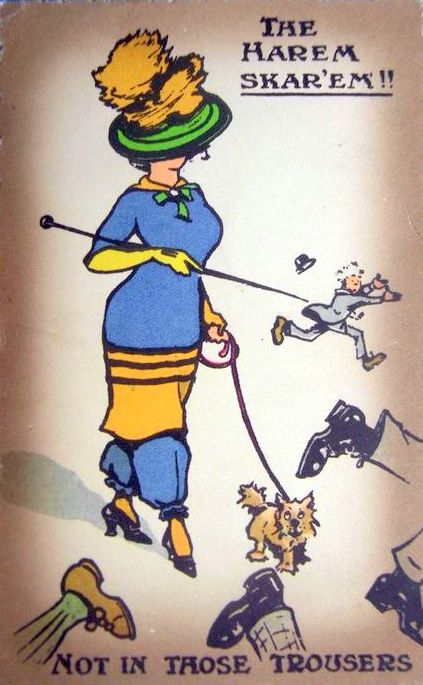Bellingham, 1911: Women Arrested for Wearing Pants
In 1911 two young Bellingham women caused a “Flurry” on Holly Street by wearing the latest controversial ladies’ fashion… the “Harem Skirt.” Despite the name, the scandalous aspect of the “Harem skirt” was really about women wearing “men’s wear,” or pants.
Parisian fashion designer Paul Poiret had already had success with his “Hobble Skirt,” an item that lived up to its name, being very tight around the ankles and actually hobbling the wearer. Although this silhouette was very much in vogue, women kinda still wanted to be able to actually walk. So Poiret presented the “Harem Skirt,” or “Jupe Culotte,” having a similar tapered silhouette, but divided by a slit so the wearer had freedom of movement.
Period photographs of the “harem skirt” show a variety of types of clothing but all show women with visible “pantaloons” underneath. Poiret’s inspiration was the clothing worn by Turkish women. Today Poiret might be criticized for his orientalism and cultural appropriation. At the time the style was regarded as inappropriate because of its ‘sexuality’ and the fact that it was ‘mannish.’ It was the visible “pantaloons” that freaked people out. A woman’s legs. In pants. In Public. Stop the presses.
Newspapers reported on women who ventured into public wearing Harem skirts and were “mobbed,” as well as attempts to pass legislation prohibiting women from appearing in public in the garments.
By May of 1911, the Harem Skirt made its first appearance in little ol’ Bellingham. Two young ladies modeling skirts from Kaufman Brothers store on West Holly ventured outside and the sidewalks became “well-nigh impassible” before concerned Citizen Ed Sterne “arrested” the girls and escorted them back to the store.
Despite having filed for bankruptcy, Kaufman Brothers took full advantage of the notorious incident in the Sunday paper, advertising “The New French Harem Skirts, worn by the two Bellingham girls, are causing crowds to pack and jam this store. They will be here Monday and Tuesday. Come, people, come.”
